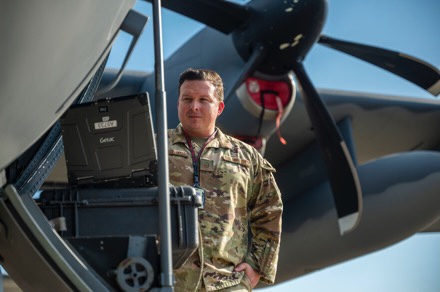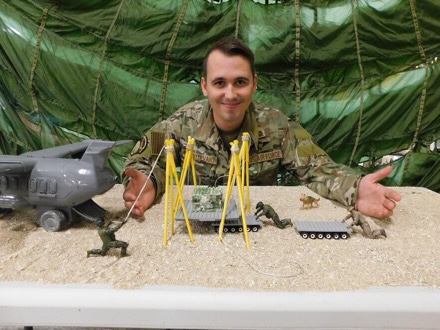HURLBURT FIELD, Fla. —
Since the inception of Air Force Special Operations Command, Air Commandos have been pathfinders, breaking new ground and laying the foundation for others to find innovative ways to solve problems, some not yet considered.
Spark Tank, an annual, Air Force-wide program that solicits solutions to operational problems, allows Air Commandos to use their innovative and pathfinding spirit to get after Air Force and AFSOC-wide problems. The program is focused on empowering Airmen at all levels by providing a platform to pitch innovative solutions.
Of AFSOC’s 31 submissions, six semi-finalists were selected to compete at the major command level.
The six finalists presented their ideas to a panel of AFSOC senior leaders who selected two to compete at the Air Force level.
“The innovative spirit of our Air Commandos is part of what makes AFSOC so unique, so it’s no surprise to see such a large turnout of great ideas,” said Mr. Donald Plater, AFSOC executive director. “This competition is about recognizing our Airmen and making the Air Force better, so let’s give them our full attention.”
The Advanced Maintenance and Troubleshooting Suite (A-MATS), submitted by Master Sgt. Aaron Cordroch, wing avionics manager for the 1st Special Operations Maintenance Group, and Project OREGON TRAIL created by Staff Sgt. Michael Sturtevant, air transportation and aerial delivery supervisor for the 353rd Special Operations Support Squadron, were the two finalists.

Cordroch’s A-MATS proposes the development of an information database which will provide access to aircraft data using cyber security monitoring tools. These tools currently provide access to previously unavailable data. This data can be used to significantly reduce maintenance costs associated with replacing parts that are still serviceable and predicting future potential maintenance issues.
“A-MATS will offer more accurate fail data to maintenance technicians, saving thousands of hours in aircraft downtime currently being used to troubleshoot maintenance problems,” said Cordroch. “It will offer more detailed and accurate aircraft historical data, while also providing current system health statuses to allow for enhanced maintenance scheduling and forecasting.”

Sturtevant’s Project OREGON TRAIL aims to create a quick and space-reducing solution for moving pallets and equipment in austere environments in lieu of a forklift.
“Fork-lifts can take 95-man hours to disassemble and reassemble and can also take up five pallet positions plus a pallet needed for fuel,” said Sturtevant.
“The goal is to deliver more mission critical equipment for those down-range who are getting the mission done and to also ensure their safety. If a forklift is down and a mission must go, our people must carry that heavy equipment themselves, and this eliminates that problem.”
“Without our Airmen, we are nothing and this is a stark reminder of how important it is to invest in our human capital,” said Plater. “I appreciate all who submitted their ideas and am truly impressed with the bright and innovative Airmen we have in this command.”
From here, the two finalists will go on to compete at the Air Force level, where a board of innovation and functional experts from Deputy Under Secretary of the Air Force, Management, and AFWERX, a Technology Directorate of the Air Force Research Laboratory (AFRL), will select the best submissions and compile a slate of Semi-Finalists for presentation to the Semi-Finals board.
If selected, the Semi-Finals board, co-chaired by the Vice Chief of Staff of the Air Force, and consisting of Vice Chief of Space and Department of the Air Force Executive subject-matter experts, will select up to six to be pitched at the Spark Tank Finals, which are planned to be held in conjunction with the Air and Space Forces Association’s Warfare Symposium in Aurora, Colo., in March.
By Capt Alicia Premo, Air Force Special Operations Command

